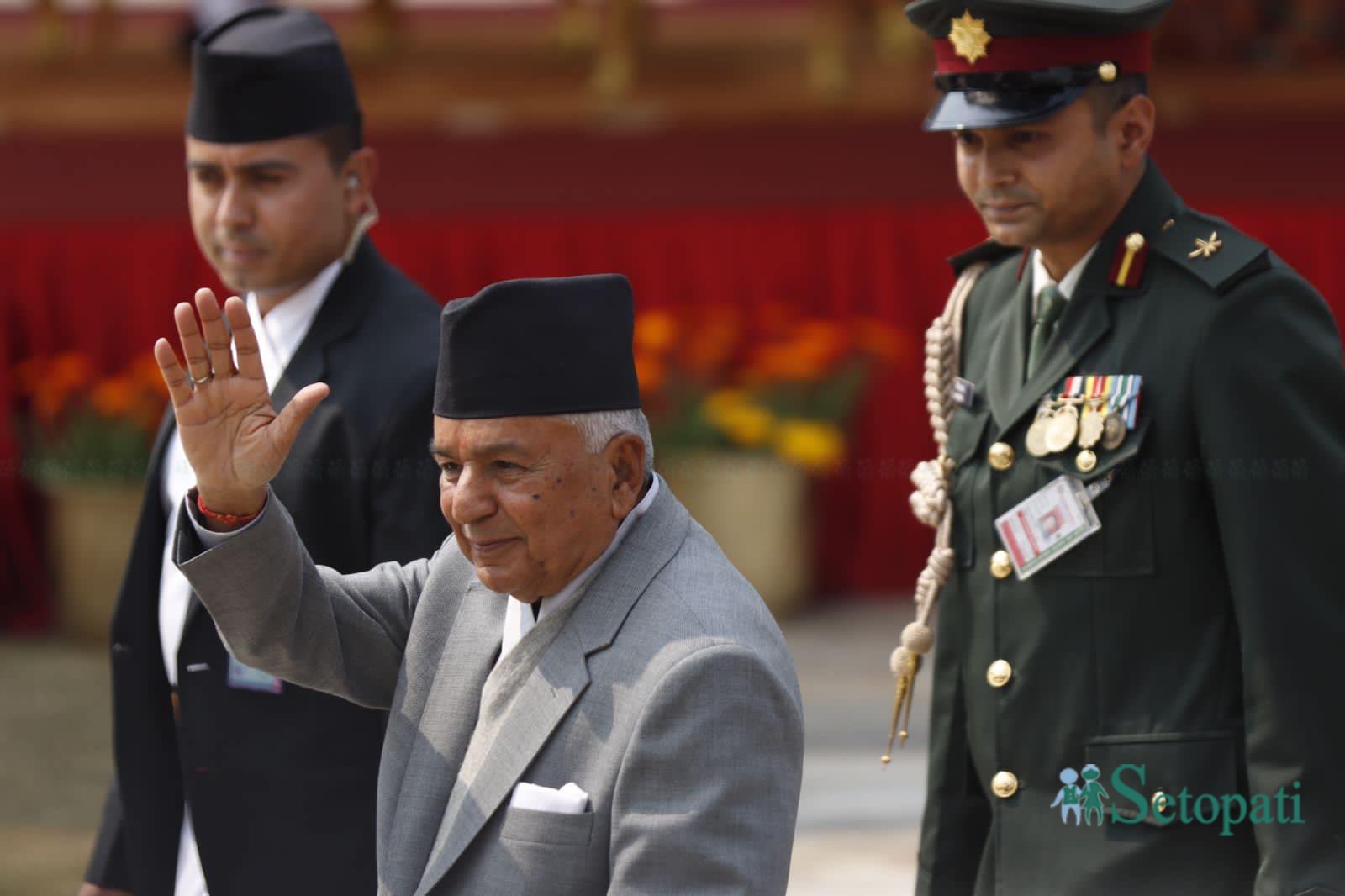Appointment of Nepali Congress (NC) central member Sunil Thapa as political advisor and former Nepal Rastra Bank (NRB) governor Chiranjeevi Nepal as economic advisor to President Ram Chandra Paudel has invited wide-spread criticism.
The president is legally allowed to appoint up to seven advisors though disciplines of the seven experts have not been specified. President Paudel has appointed three including former attorney general and provincial chief of Gandaki Baburam Kunwar as the legal advisor until now.
There is doubt as to whether Thapa, who is also NC working committee member, can provide unbiased political advice to the president who has to remain neutral and act as the guardian of the country.
Paudel himself announced dissociation from all responsibilities of NC after being elected president but Thapa has yet to resign from party positions. Thapa argues that his central membership is suspended and he will not be involved in party activities. “I will have to return to the party if I don’t like to stay at the President’s Office tomorrow,” he contends when asked why he has yet to resign.
Appointment of a salaried economic advisor similarly has drawn criticism as the Constitution does not envision any role of the president in economic affairs and the president can always invite anyone from the prime minister (PM) to the finance minister and economic experts to understand the economic situation of the country.
Nepal responds that the question will have to be directed at President Paudel when asked why a president needs an economic advisor. He adds that President Paudel is aware of the problems facing the Nepali economy and may have recruited his services to remain informed about how those problems can be resolved.
“Is it not good for the protector of the country to be cognizant of what is happening in the economy in his own way?” he quips. “When Bidya Devi Bhandari was the president she would invite us and ask about what was happening in the economy. The current president may have appointed me as an expert as the economy is in a greater problem now.”
Personal secretary to former president Bhandari, Bhesh Raj Adhikari, reveals that Meena Acharya was appointed as an expert for women’s and children’s affairs also to oversee economic affairs even though Bhandari had not appointed anyone as an economic advisor. “President has to advise the prime minister at times. Experts are appointed to remain informed about everything for such occasions.”
President Paudel is legally allowed to appoint four more experts as advisors but NC General Secretary Gagan Thapa has publicly spoken about the need for the president and the PM to make as few appointments in their secretariat as possible for austerity at a time when the country is facing economic problems.
Thapa points that such measures by PM Pushpa Kamal Dahal and President Paudel, though seemingly trivial, will have a big meaning. “There will be an improvement, albeit small, if they say that they will cut all but essential expenses but increase capital expenditure that has multi-dimensional implications.”
Economic advisor to the president Nepal argues that appointing just three advisors when seven can be appointed in itself is an austerity measure.
Advisor to the first president of Nepal Ram Baran Yadav, Hari Sharma, points that the president does not need to keep a jumbo team in the name of experts. “There was Interim Constitution when Ram Baran Yadav was president. There was no previous exercise of the rights and duties of the president,” Sharma reasons. “He needed comparatively more advisors then. The Constitution has specified everything now. Bidya Devi Bhandari has served two terms as per that Constitution. I don’t feel there is need for a jumbo team to advise the president now.”
He explains that the president partly constitutes all three organs of the state giving examples of how the president administers oath of office and secrecy to the chief justice and grants presidential pardons on recommendation of the Cabinet; authenticates acts and ordinances and calls House sessions; and appoints ambassadors of the country and receives credentials from envoys of other countries.
He adds that the Constitution has specified the role and duties of the president, and there is provision for the secretariat to facilitate fulfillment of those duties. “What kinds of experts and associates are needed for those works depends on the needs and the situation of the country,” he adds. “One may even argue, for the sake of argument, that a chef is needed for advice on cooking as the president hosts domestic and foreign guests.”

